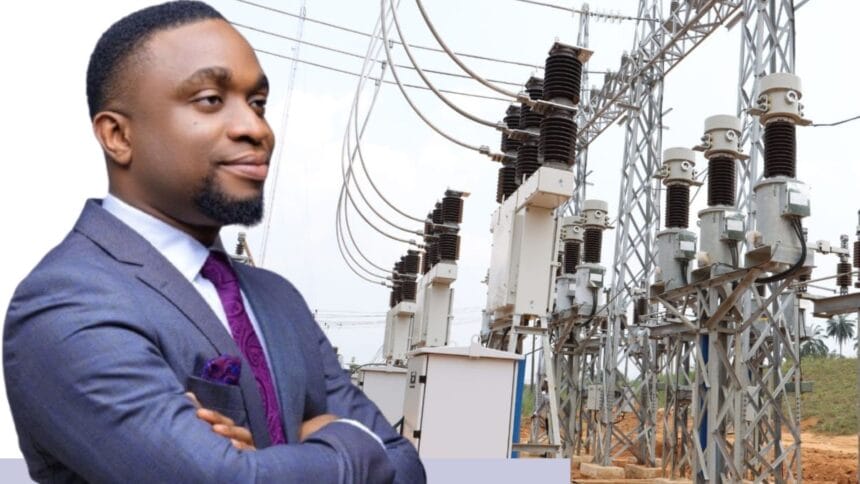by Ibubelem Ikiroma
Contents
- Challenges Plaguing Electricity Distribution
- Proposed Reforms for Distribution
- 2. DISCOs
- 3. FGN – FMOP/BPE
- 4. NERC/SERC
- 5. State Disco Subsidiaries
- 6. End-User Associations
- 7. FGN – FMOP/State Govts/NERC/SERC
- Expected Outcomes
- Advantages – Distribution
- Transmission – Major Challenges
- Suggested Reforms & Policy Updates – Transmission
- 1. FMOP
- 2. Independent System Operator
- 3. FMOP/NERC/BPE
- Transmission – Expected Outcomes
- Advantages – Transmission
- GENCO – Major Challenges
- Suggested Reforms & Policy Updates – GENCO
- 1. NERC
- 2. NBET
- 3. FMOP/FMPR
- 4. FMOP/FMPR/FMF
- 5. NDPHC
- GENCO – Expected Outcome
- Advantages – GENCO
- Suggested Reforms & Policy Updates – Others
- 1. FMOP
- 2. NERC
- 3. NERC/SERC
If Nigeria is to achieve a sustainable, efficient, and investor-friendly electric power sector driven by private participation, reform efforts must start at the very base of the industry, electricity distribution.
Given the sector’s pyramid-like structure—Distribution at the base, followed by Transmission, and then Generation—the performance of the Distribution Companies (DisCos) is critical to the overall health of the industry.
Strengthening this foundational layer is essential for Nigeria’s broader energy ambitions.
Challenges Plaguing Electricity Distribution
- Funding inadequacies – Capex & Opex
- Right pricing challenges – Cost reflective tariff
- Significant customer prepaid metering gap
- Collection difficulties, significant long-standing accounts receivable
- Vandalization of distribution equipment
- Increasing electric power theft
- Generation & transmission challenges impacting distribution
- Dilapidated & inadequate distribution infrastructure
- Inadequately skilled manpower
- Poor safety culture
- Poor customer care culture
- Poor data culture – customer enumeration, etc.
- Poor staff welfare, including insurance, continuous training, etc.
Proposed Reforms for Distribution
1. NERC
- Issue a policy directive requiring all Discos to set up state subsidiaries regardless of whether NERC has handed over regulatory authority to the states where these Discos are located.
- Issue a policy order requiring the other state subsidiaries owned by original private investors to recapitalize to bring in new investors. These investors shall bring in assets rather than cash and would also be entitled to grants from the FGN as they achieve certain ATC&C milestones and other agreed thresholds at agreed timelines.
2. DISCOs
- Discos to set up state subsidiaries for each state where they have a presence, following the NERC directive.
- Discos should ensure that legacy receivables and payables remain with the Holdco; only assets are transferred.
- Ownership of these state subsidiaries should be wholly owned by either of the two current owners of each Disco (i.e., the respective private investor and the MOFI representing FGN’s 40% interest).
- This may require asset valuation and accounting entries to establish single ownership of each state subsidiary.
3. FGN – FMOP/BPE
- Sales of state subsidiaries wholly owned by FGN through a fair & transparent transaction.
- Selection of the most qualified investors based on financial and technical competence.
- No cash proceeds for the government, but new owners shall commit to bringing in assets worth the agreed investment sum and earn an FGN grant as ATC&C and other agreed thresholds are met.
4. NERC/SERC
- Issue updated franchising guidelines compelling state Disco subsidiaries to map out stand-alone franchise areas across the state.
- Set participation criteria for franchise operators in the state subsidiary Disco space.
- Collaborate with states that already have SERCs in place for effective synergy in execution.
5. State Disco Subsidiaries
- Implement the NERC/SERC franchise order.
- Franchise owners to manage small areas and ensure:
- ATC&C reduction
- 100% metering
- 100% customer enumeration
- Improved customer care and safety records
- Upgraded infrastructure
- Achieve 24/7 consistent power using optimal strategies
- Franchise owners must be bankable and able to secure financing.
6. End-User Associations
- Disco to liaise with electricity users in each catchment area and establish small local end-user associations.
- Ensure two-way communication, timely feedback, and policy/program understanding.
7. FGN – FMOP/State Govts/NERC/SERC
- Monitor implementation, update strategy based on new data.
- Collaborate with investors and stakeholders (including consumers).
- Improve communication and public awareness of power sector reforms.
Expected Outcomes
- 11 Discos’ legacy entities to retain legacy receivables/payables; state subsidiaries to act as principal collection agents.
- New state-level Discos per state (except Lagos with Eko and Ikeja).
- New investors to inject necessary assets and drive rapid ATC&C loss reduction, customer service, and infrastructure upgrades.
- State Discos recapitalize with new shareholder investments.
- Franchises/SPVs to manage specific areas and fund network improvements.
- State subsidiaries to eventually list on the stock market, enabling public participation.
Advantages – Distribution
- Inflow of new investments
- Sharp & steady ATC&C loss reduction
- Job creation (direct and indirect)
- Boost for local manufacturing (meters, cables, etc.)
- Less reliance on fuel generators
- Increased transparency via stock exchange listings
- Effective reforms without significant new FGN capital outlay
- Greater local and foreign direct investments
Transmission – Major Challenges
- Inadequate funding
- Dilapidated equipment
- Vandalism of equipment & infrastructure
- Outdated national grid model
- Inadequately skilled manpower
- Poor safety culture
- Poor staff welfare, insurance, training, etc.
Suggested Reforms & Policy Updates – Transmission
1. FMOP
- Commission studies on grid models (national, regional, hybrid) and funding options (stock market, government funding, investor involvement, concessions, etc.)
2. Independent System Operator
- Full market and system operations by ISO
- TCN to focus solely on transmission (as per Electricity Act 2023)
3. FMOP/NERC/BPE
- Rapidly implement optimal strategy based on research
- Encourage private investor funding with attractive returns
Transmission – Expected Outcomes
- Speedy transformation of the transmission sub-sector
- Elimination of recurring grid collapse
- Increased transmission capacity
Advantages – Transmission
- Enhanced electricity supply nationwide
- Associated economic and social benefits
GENCO – Major Challenges
- Gas constraints
- Security issues
- Currency devaluation (import/spare parts)
- Long-outstanding receivables
- Lack of PPAs
- Bottlenecks in bilateral contracting
- National grid collapses impacting Gencos
Suggested Reforms & Policy Updates – GENCO
1. NERC
- Promote bilateral contracting between Gencos & Discos
- Encourage take-or-pay gas contracts
- Remove licensing and bureaucratic bottlenecks
- Promote renewable energy
2. NBET
- Continue managing legacy receivables/payables as bilateral contracting progresses
3. FMOP/FMPR
- Resolve gas supply constraints, ensure fair pricing to end-users
4. FMOP/FMPR/FMF
- Establish Africa’s largest gas-fired power plant as an SPV, project-financed with minimal government capital
- Quoted company owned by Nigerians (stock/debt financed)
- Leverage gas location for plant siting and scalability
5. NDPHC
- Ensure plants are functional, then privatize to qualified investors
- Reinvest proceeds into new generation projects
GENCO – Expected Outcome
- Africa’s largest gas power plant constructed rapidly
- Reforms in Disco/transmission improve Genco performance
- Increased energy generation to meet national and regional demand
Advantages – GENCO
- Enhanced power generation across Nigeria
- Boosted industrial and economic productivity
Suggested Reforms & Policy Updates – Others
1. FMOP
- Identify/remove regulatory hurdles to new investments
- Host bi-monthly roundtables and quarterly in-person meetings with power sector players at various locations (e.g., Disco/Genco sites)
2. NERC
- Maintain responsive, prompt regulatory action
3. NERC/SERC
- Encourage strong coordination and collaboration




